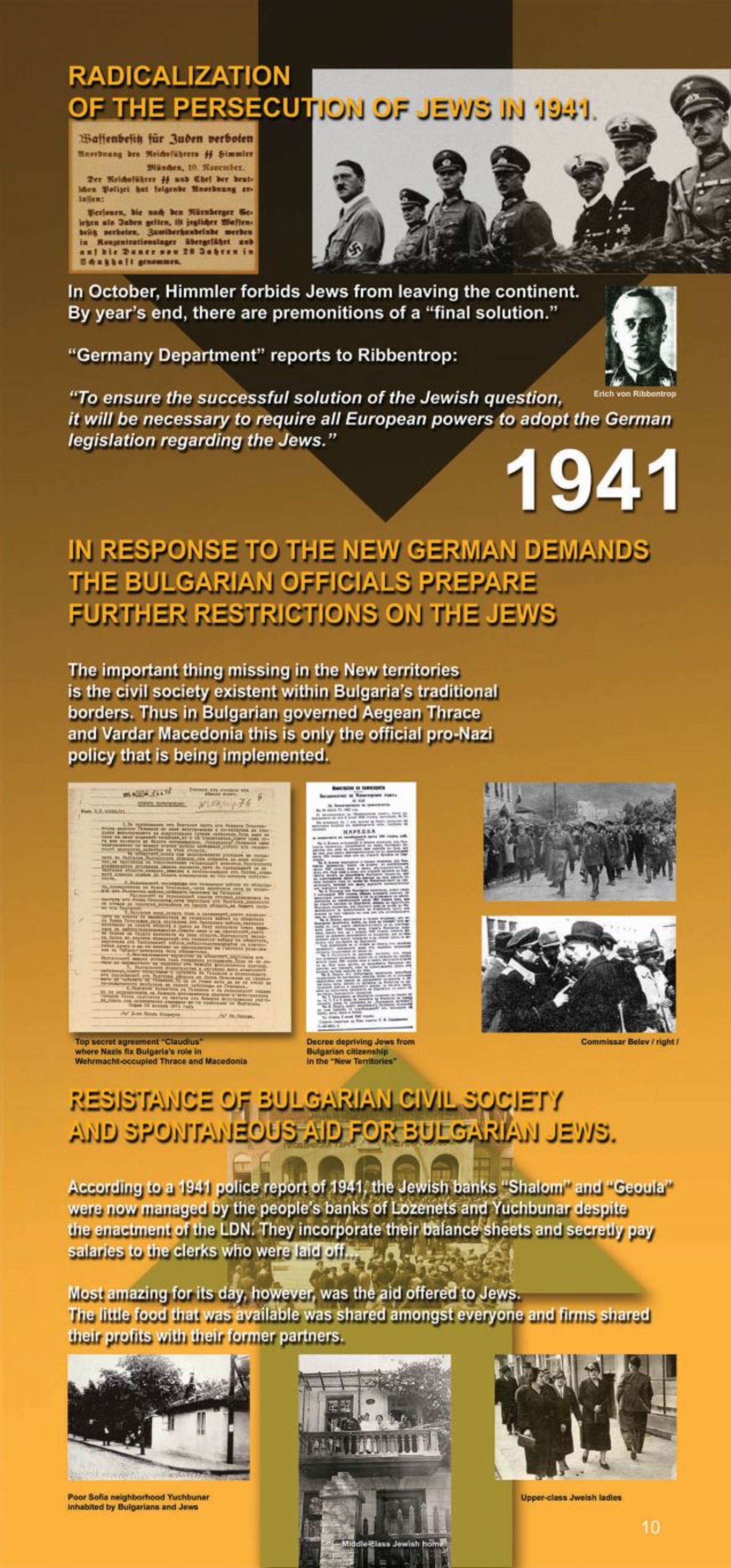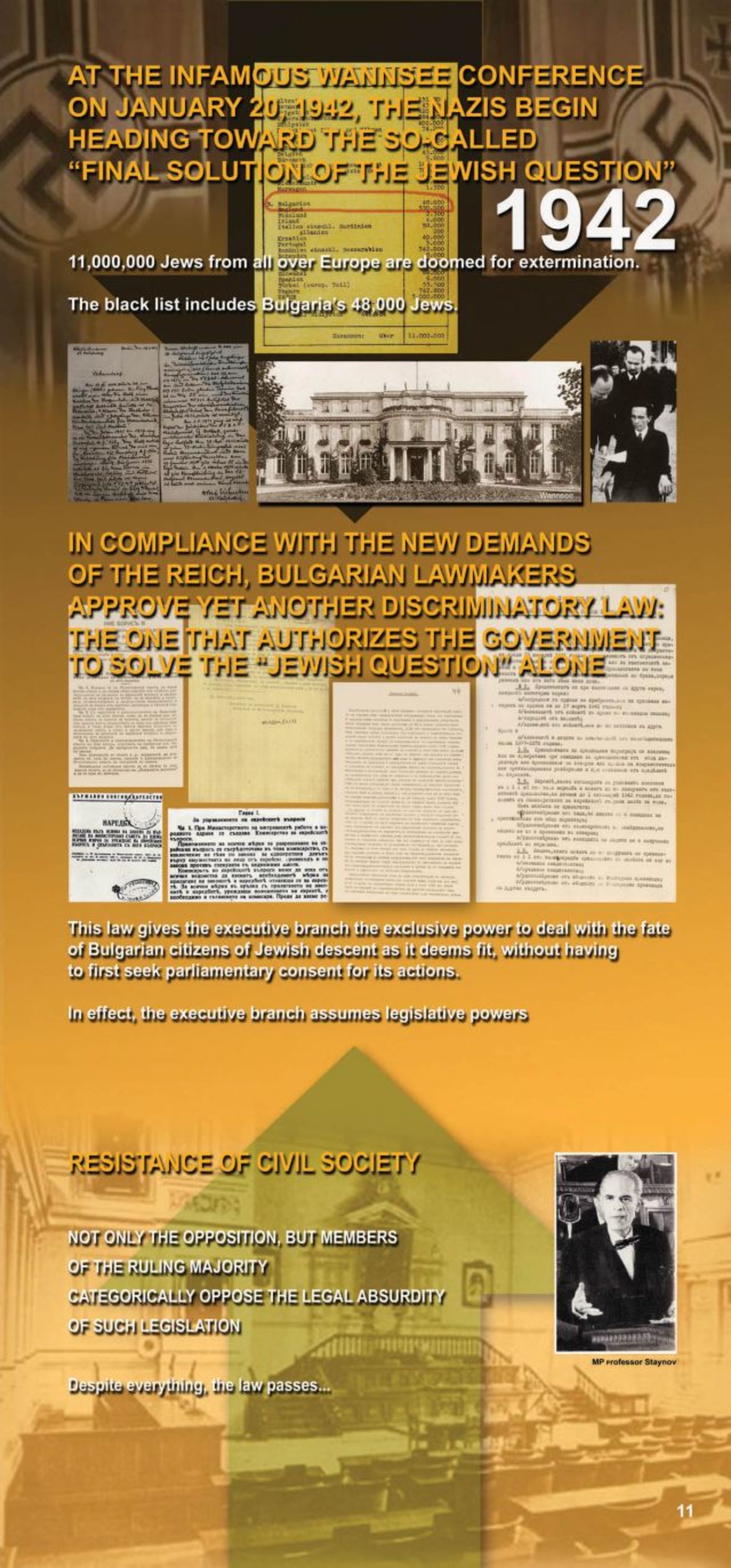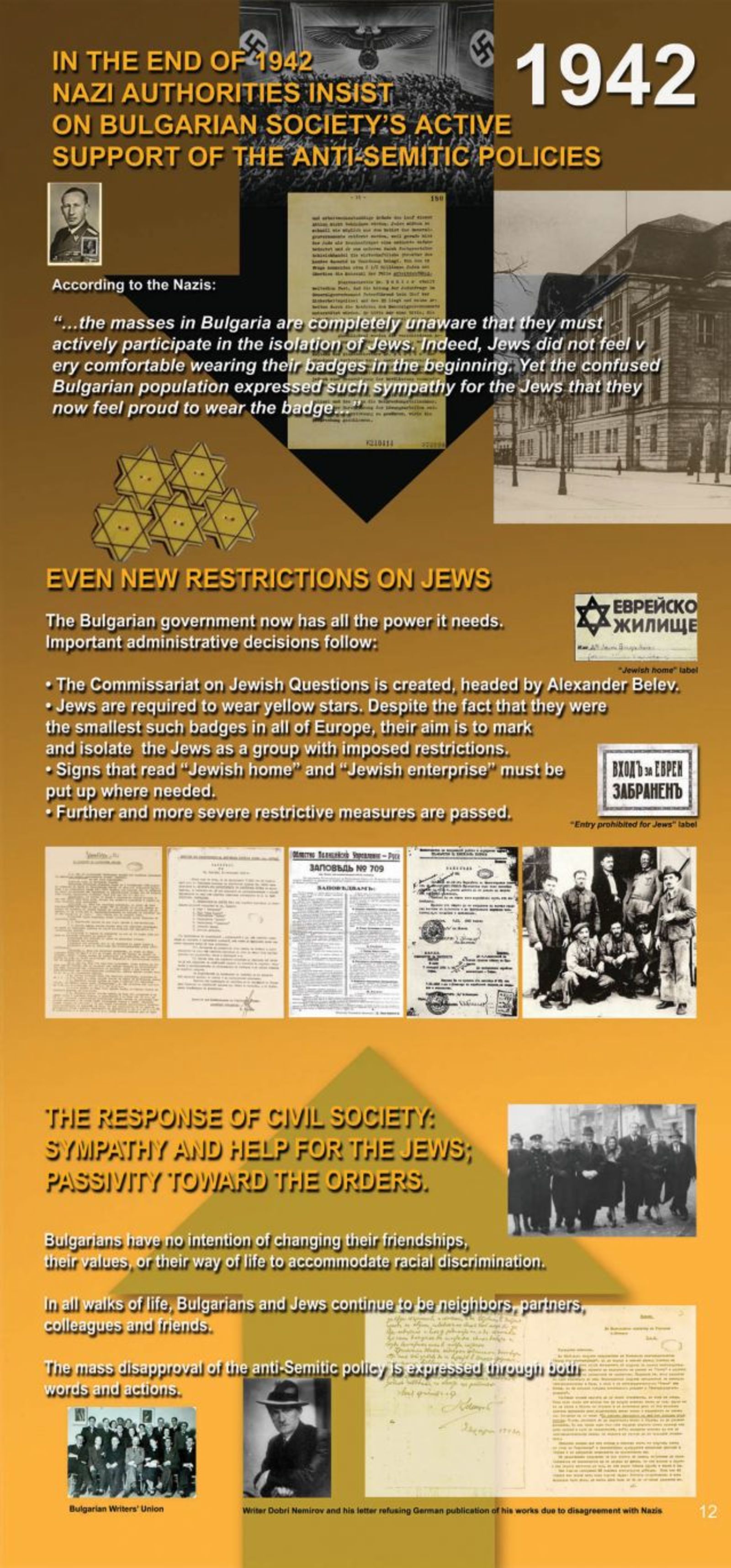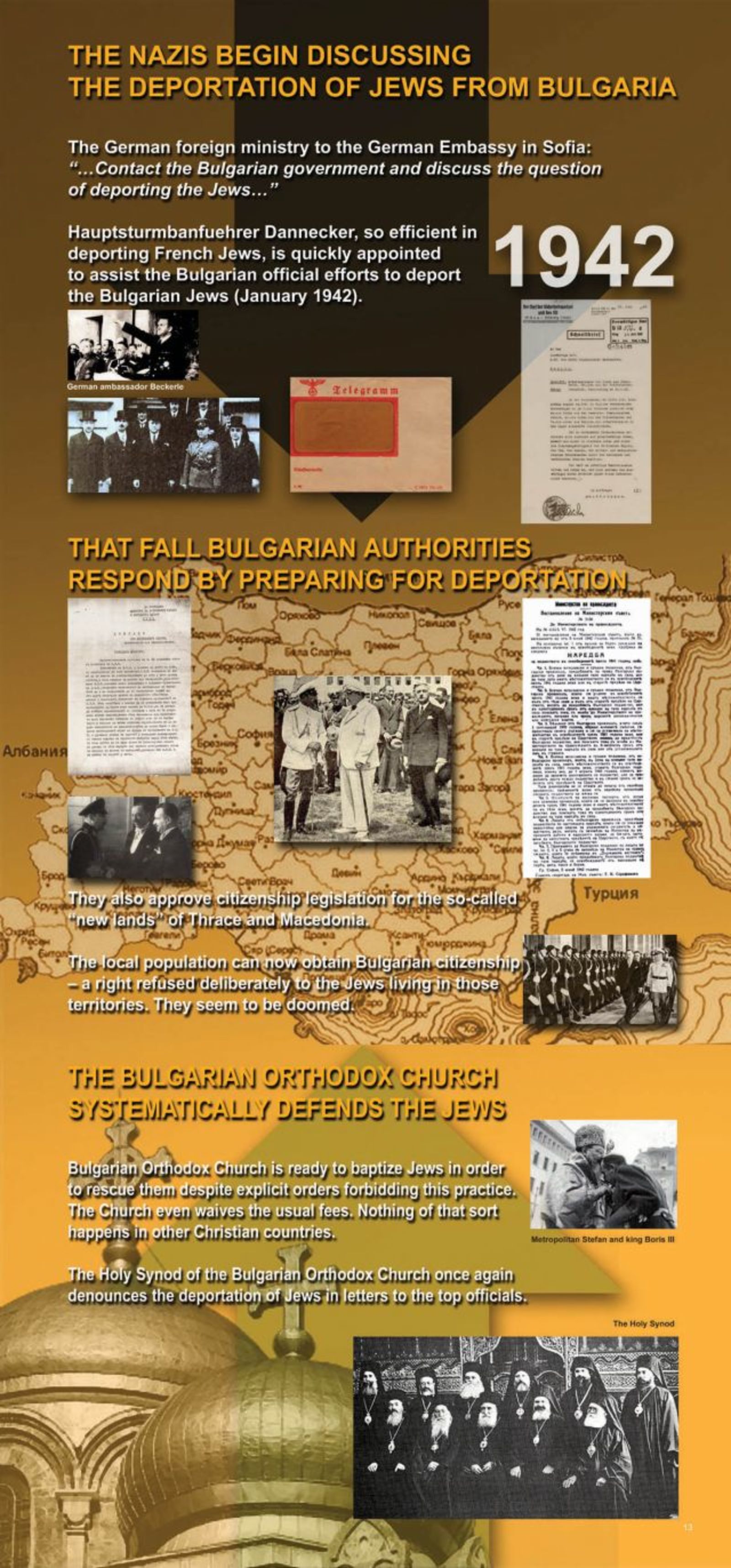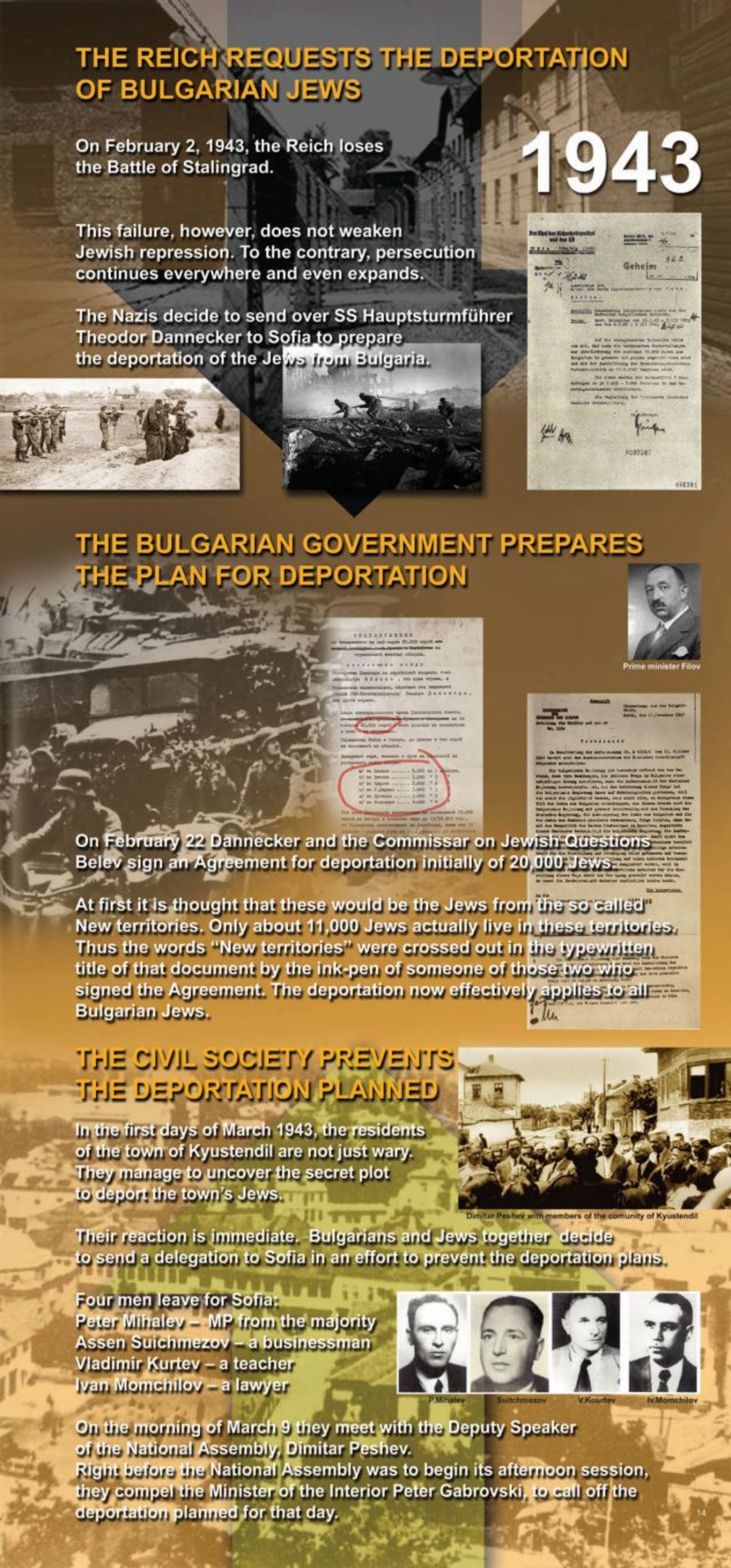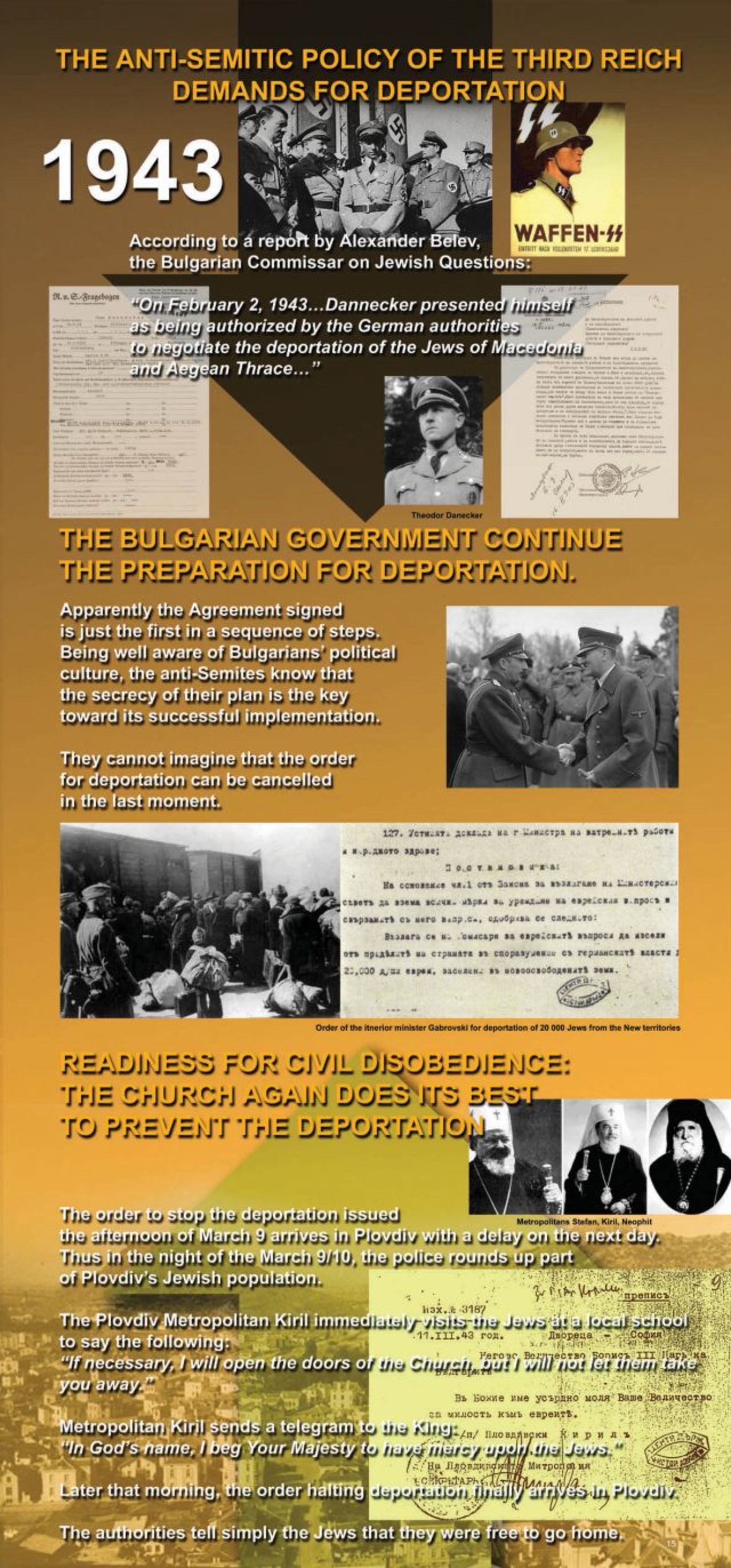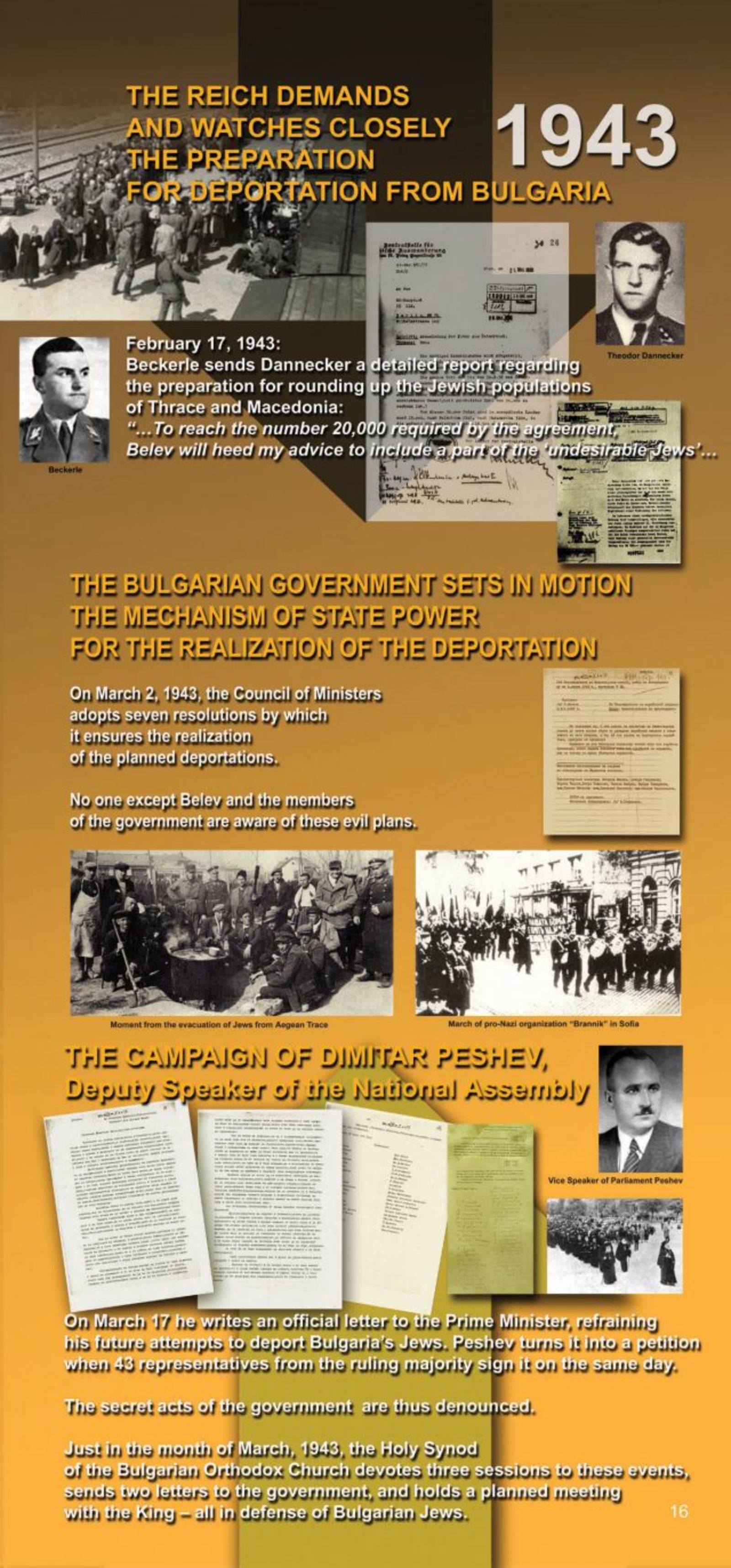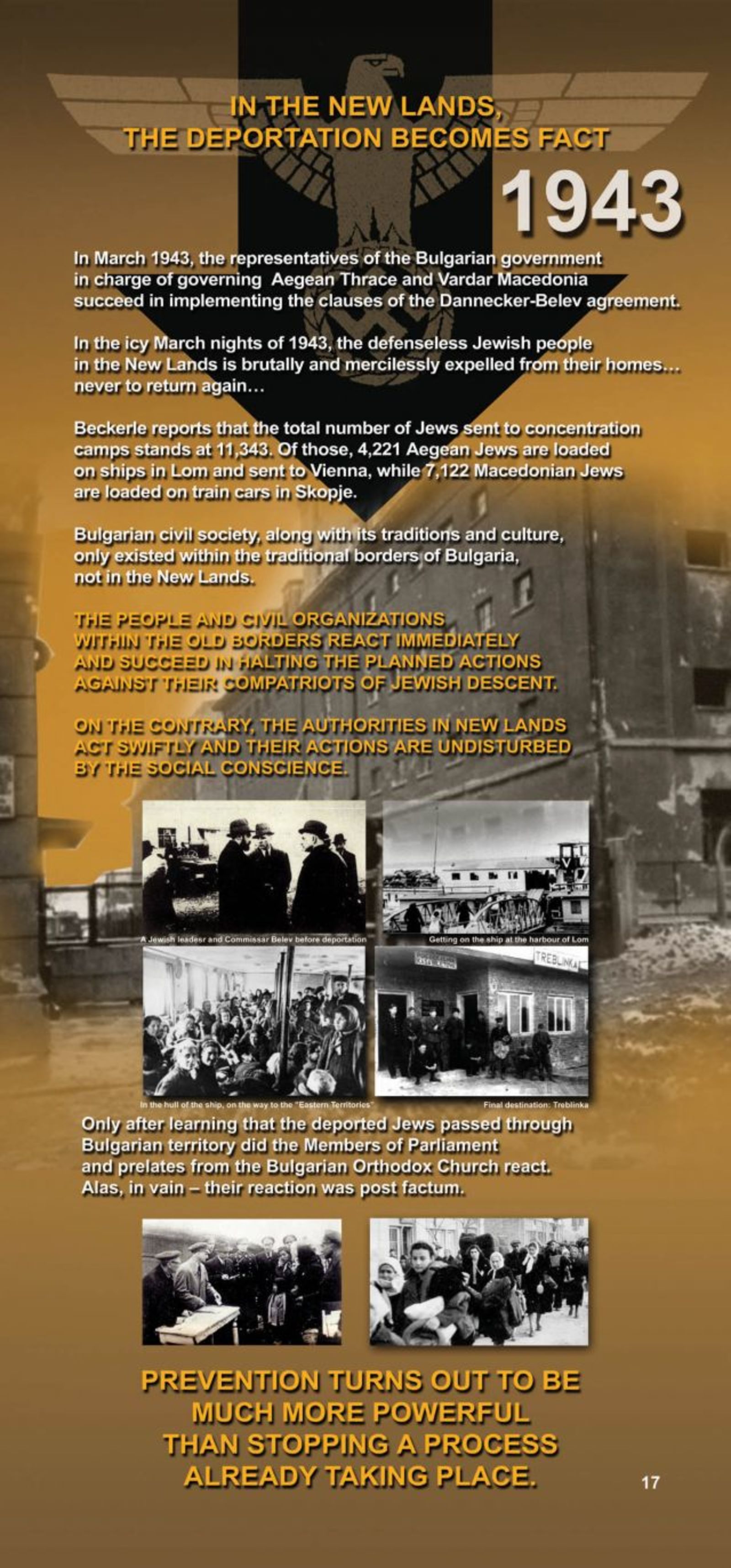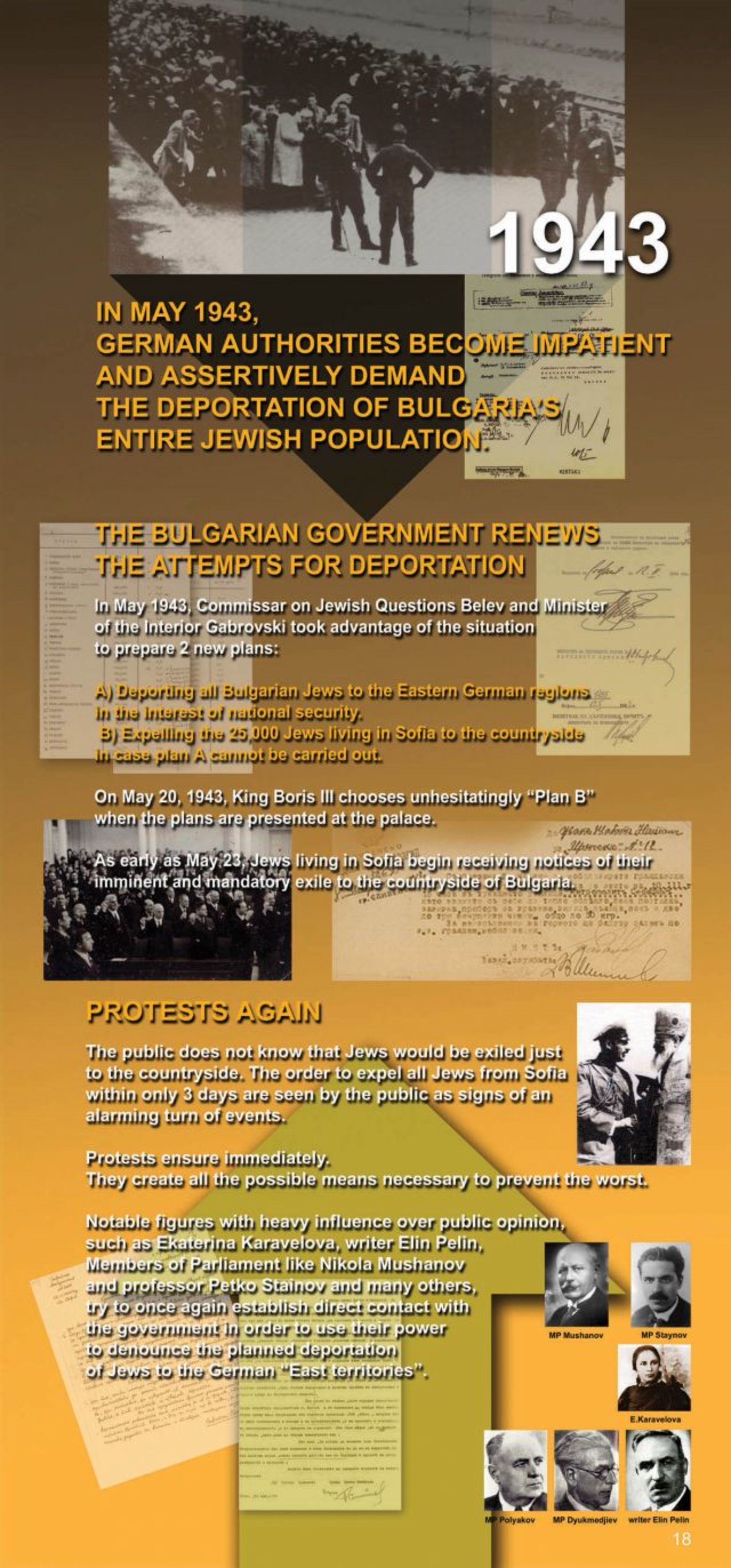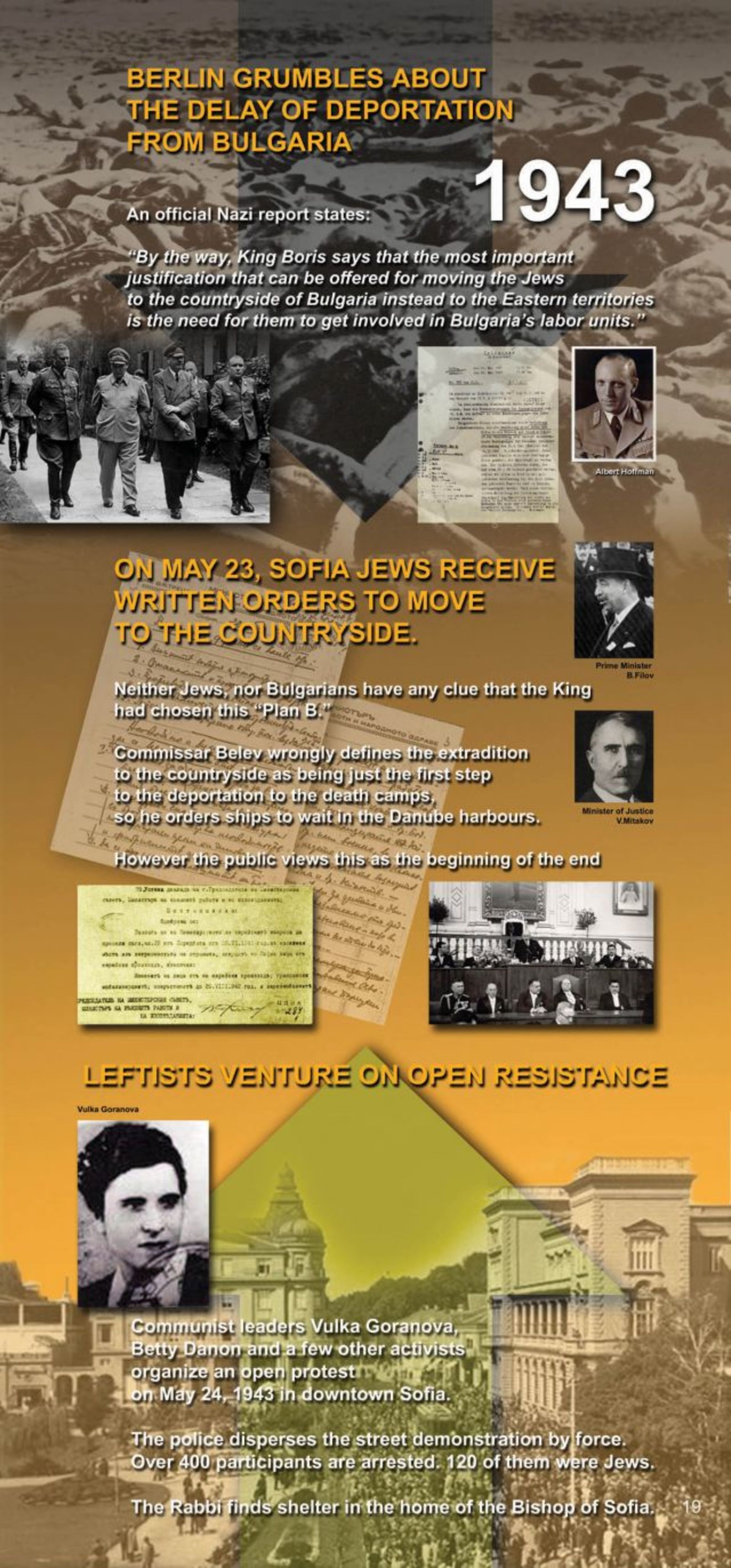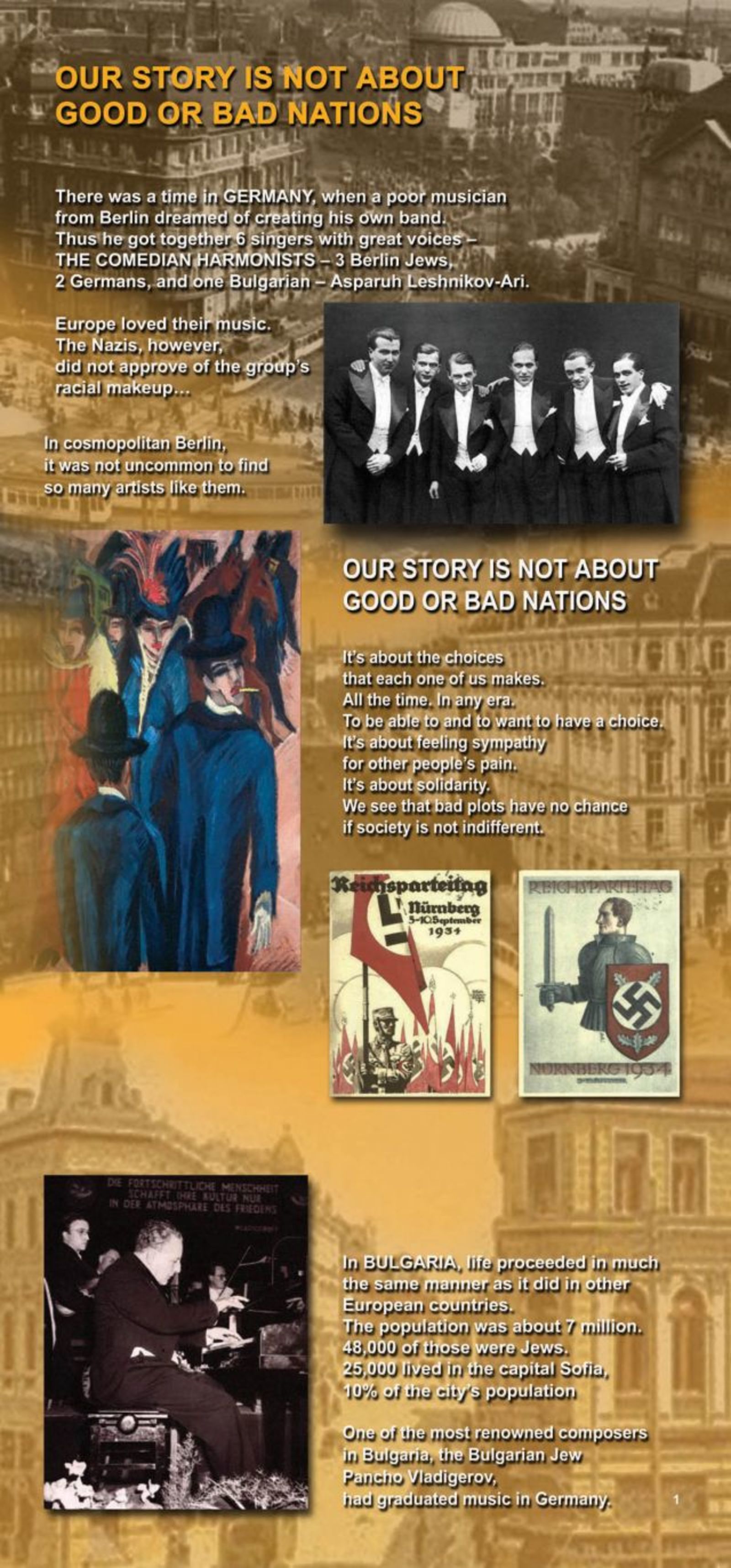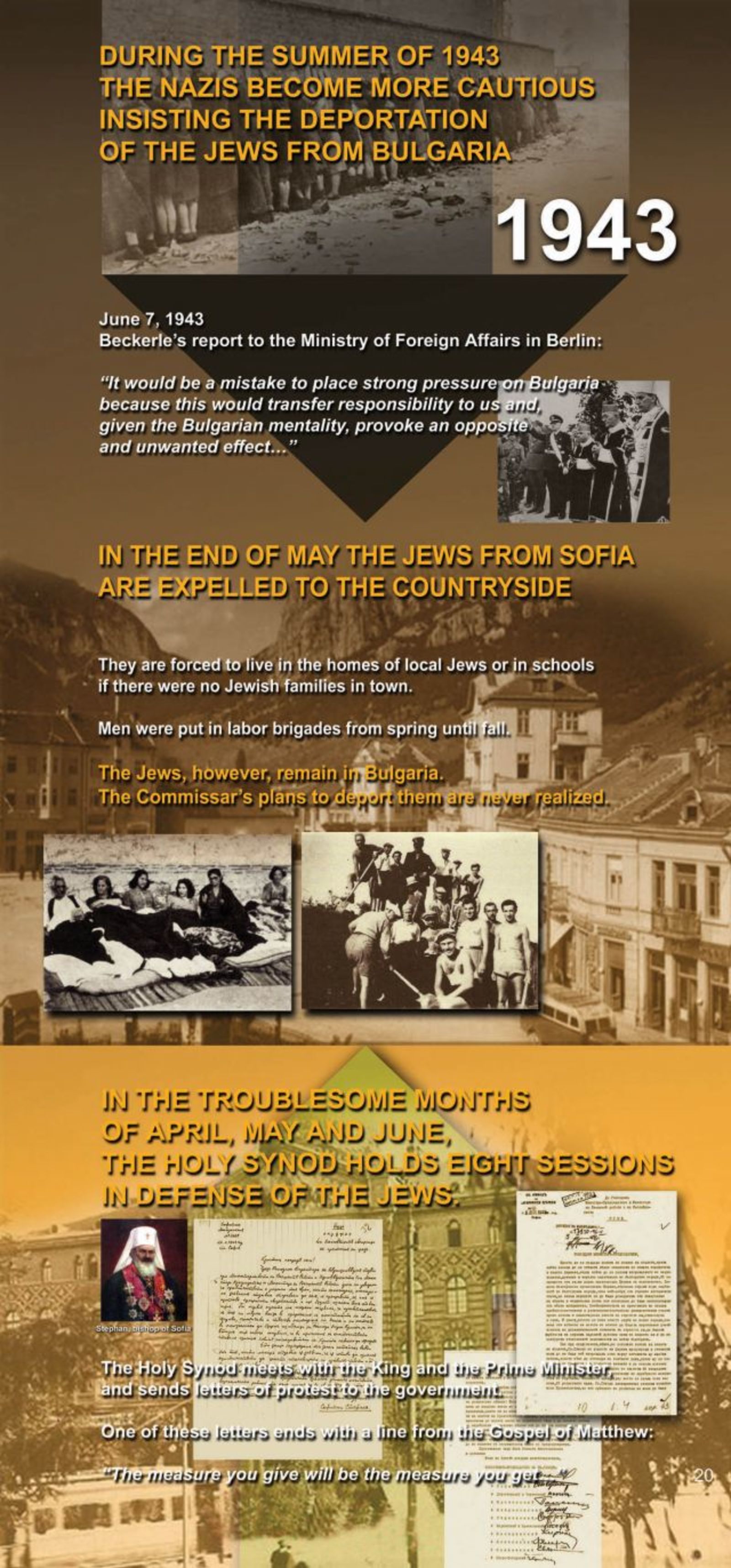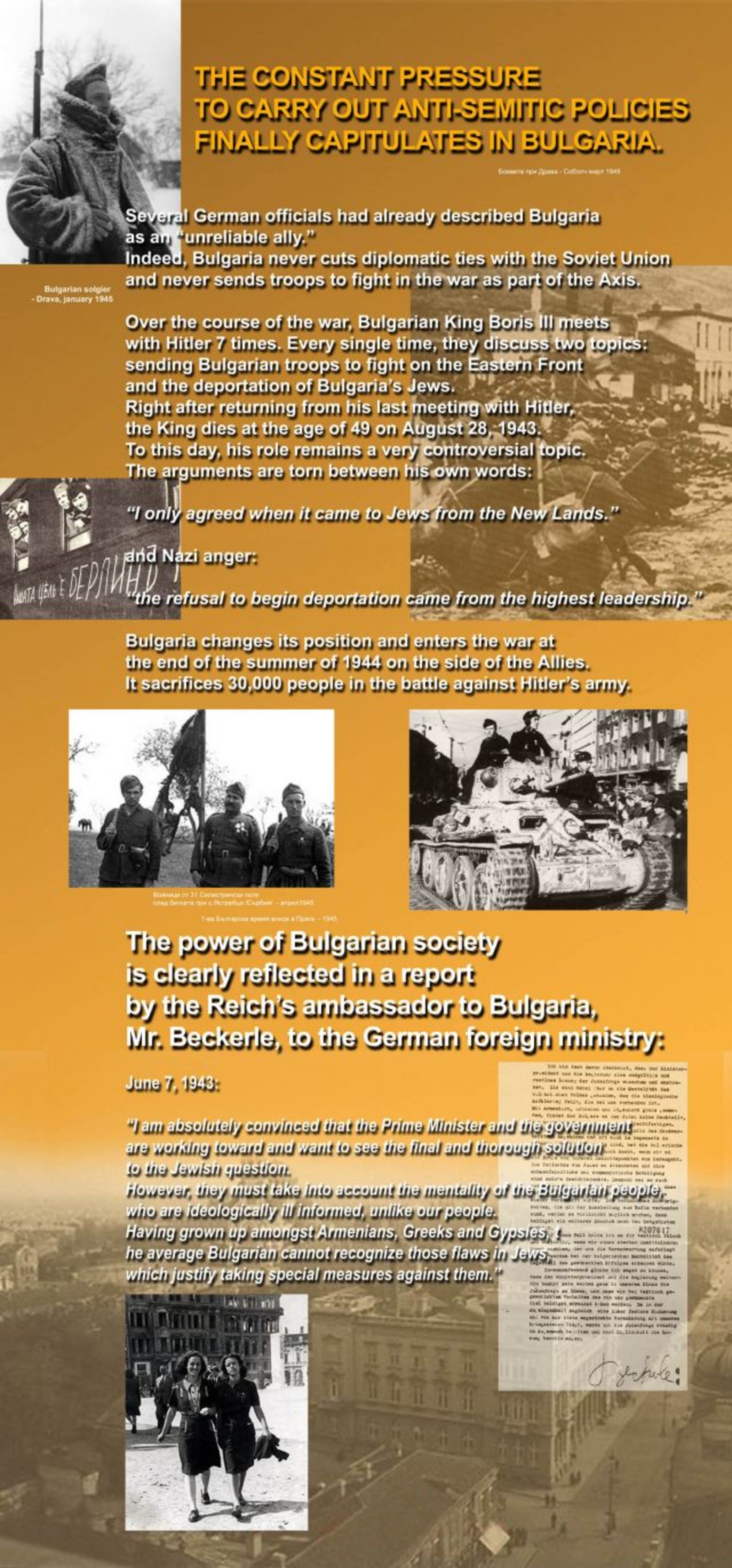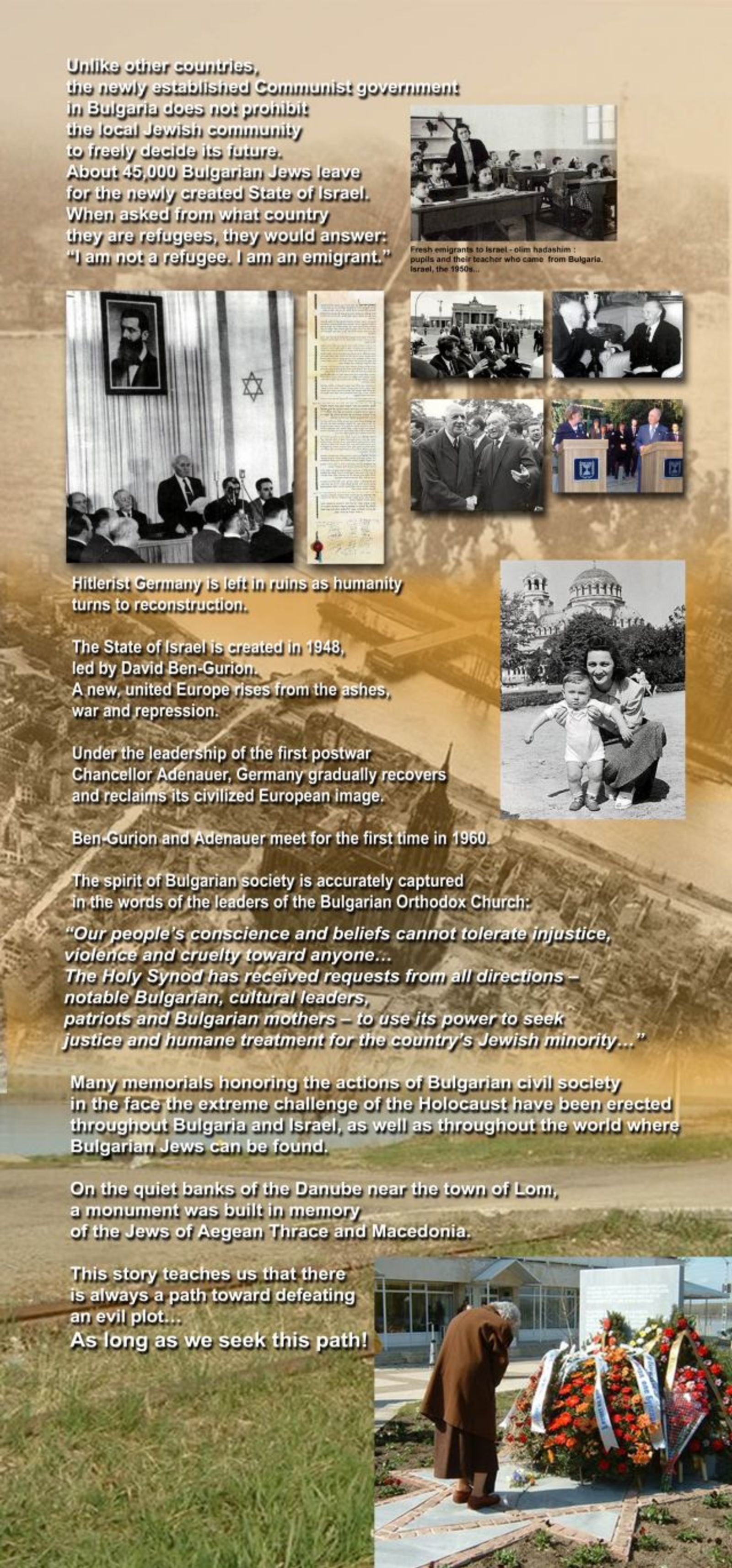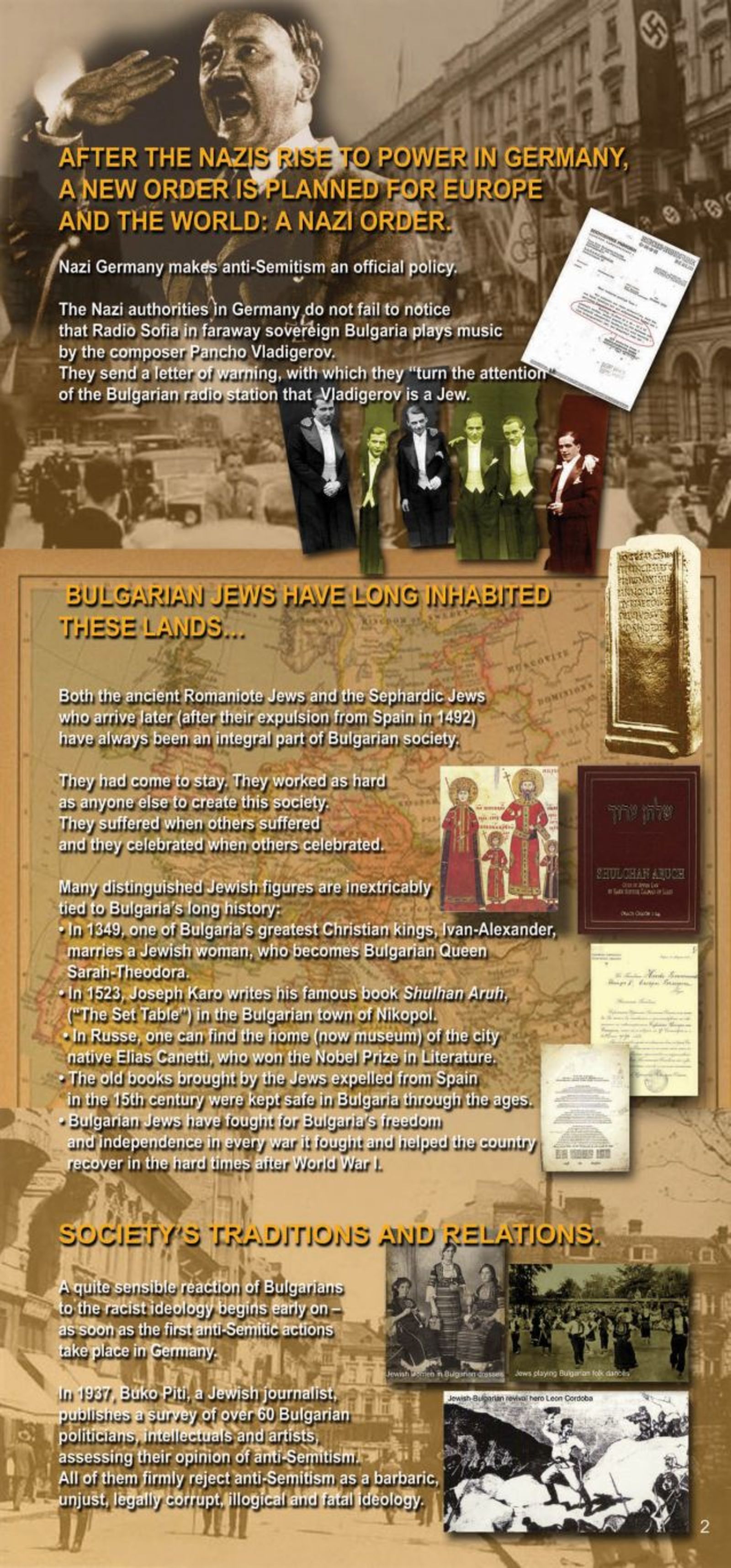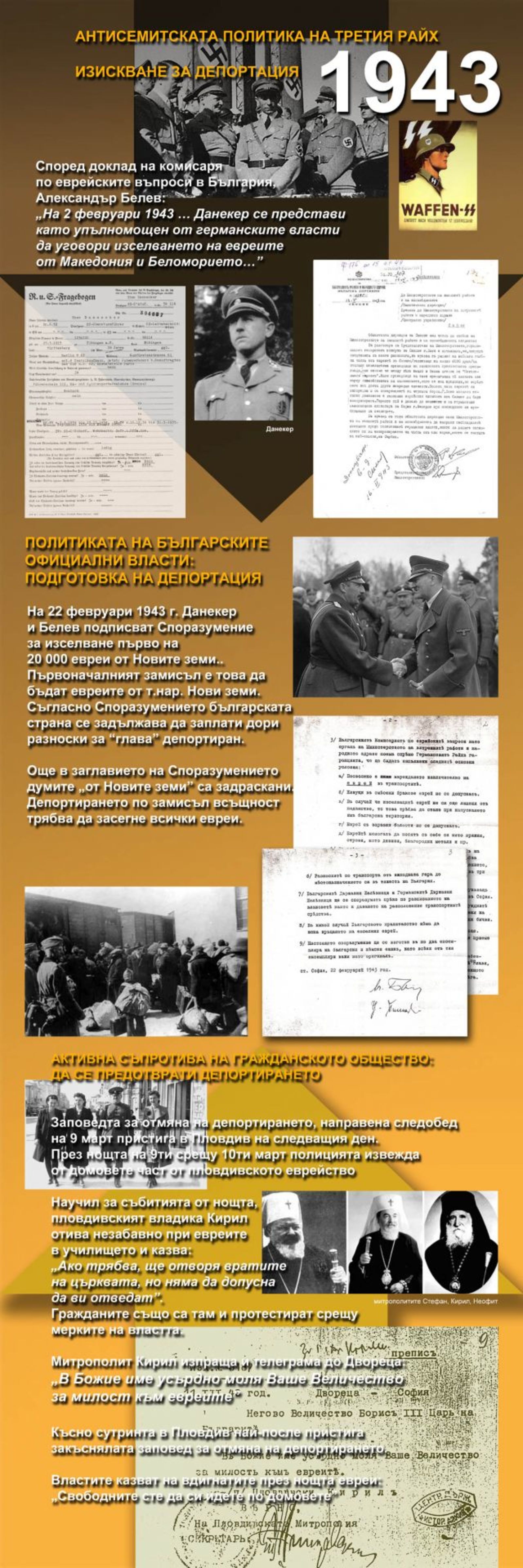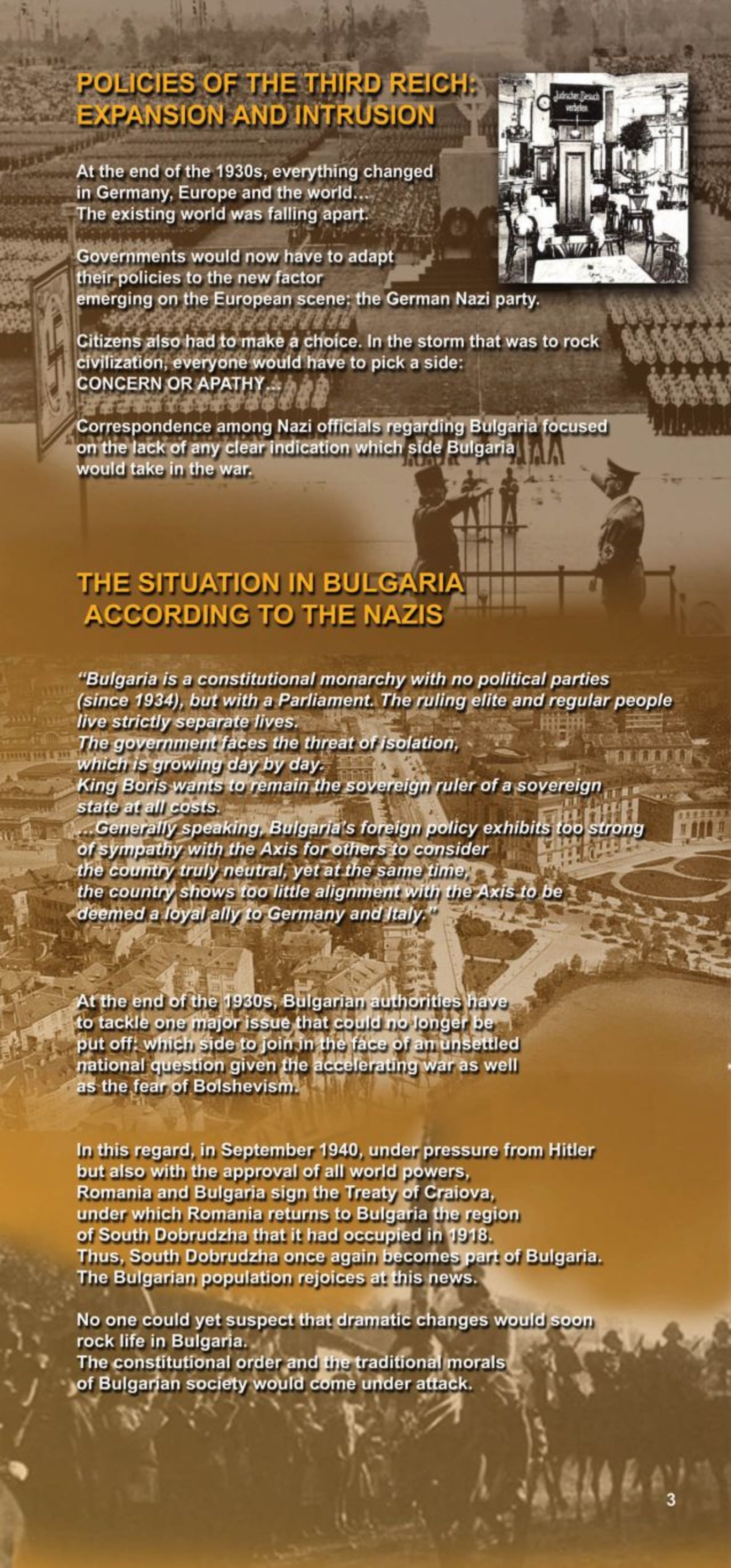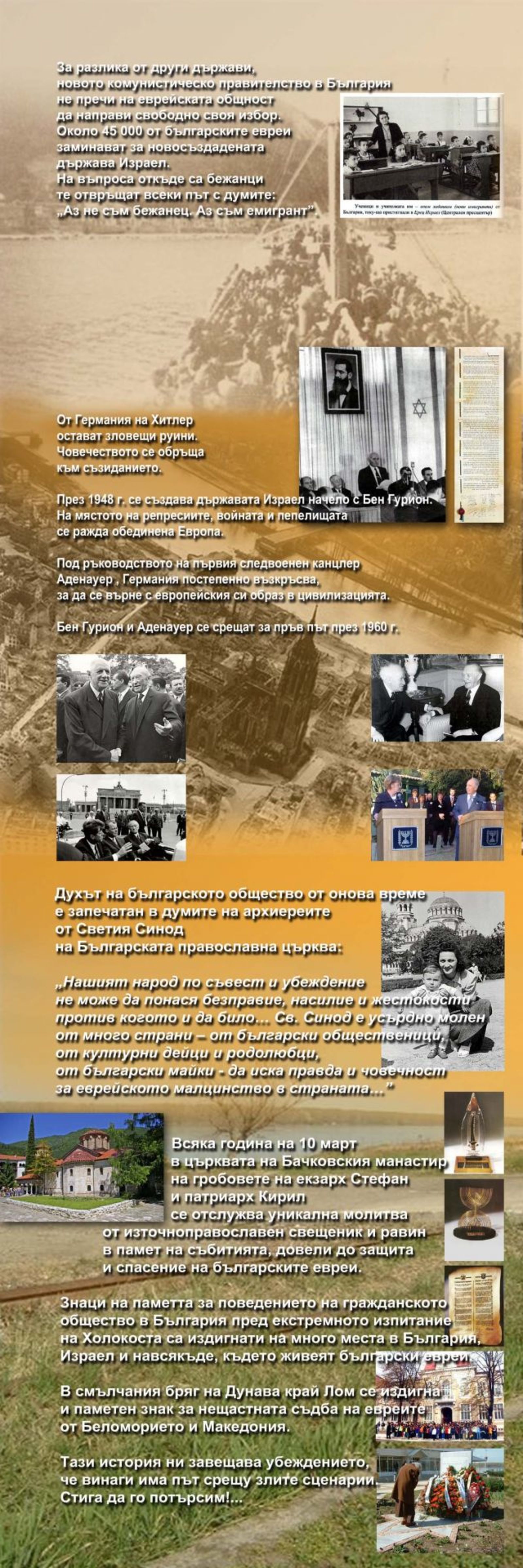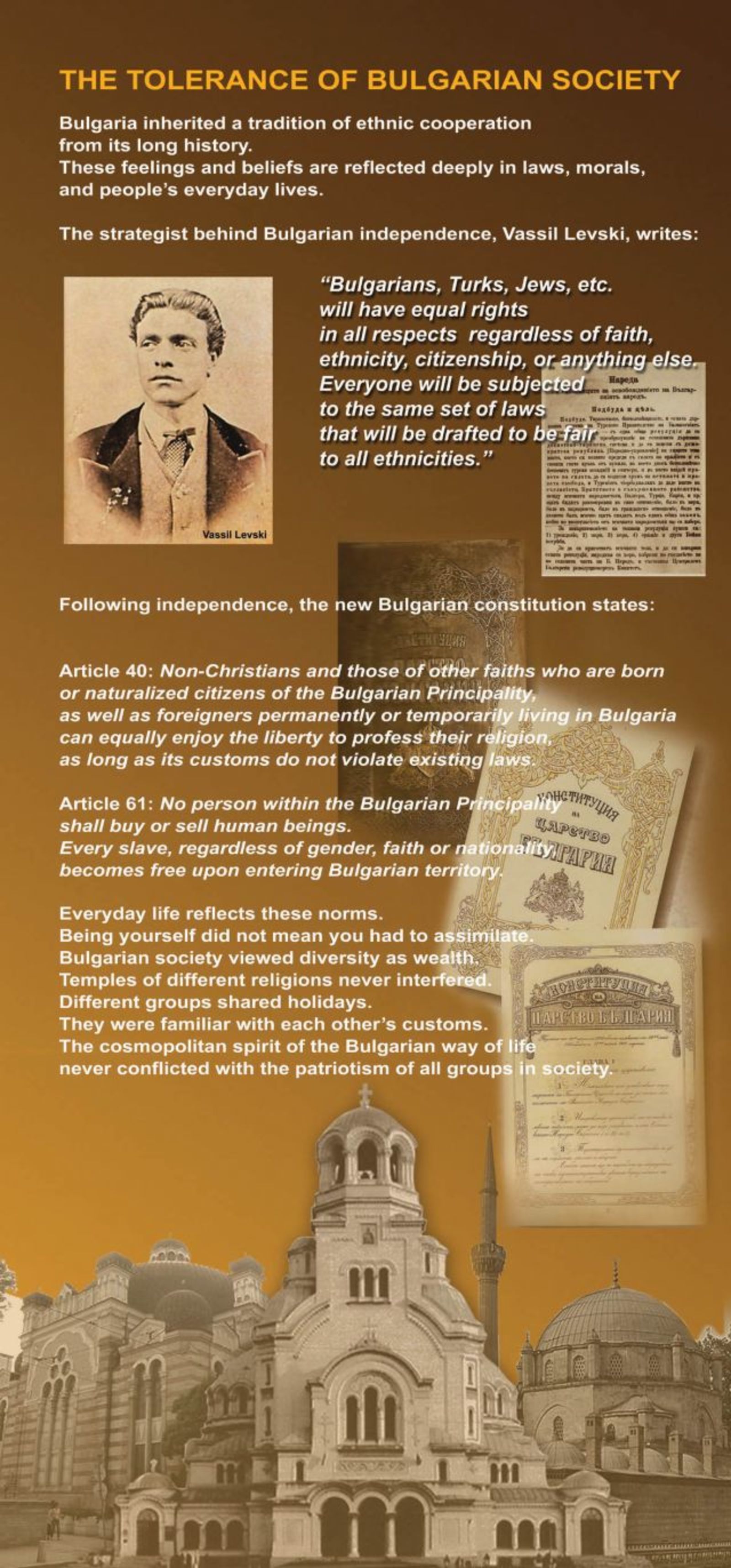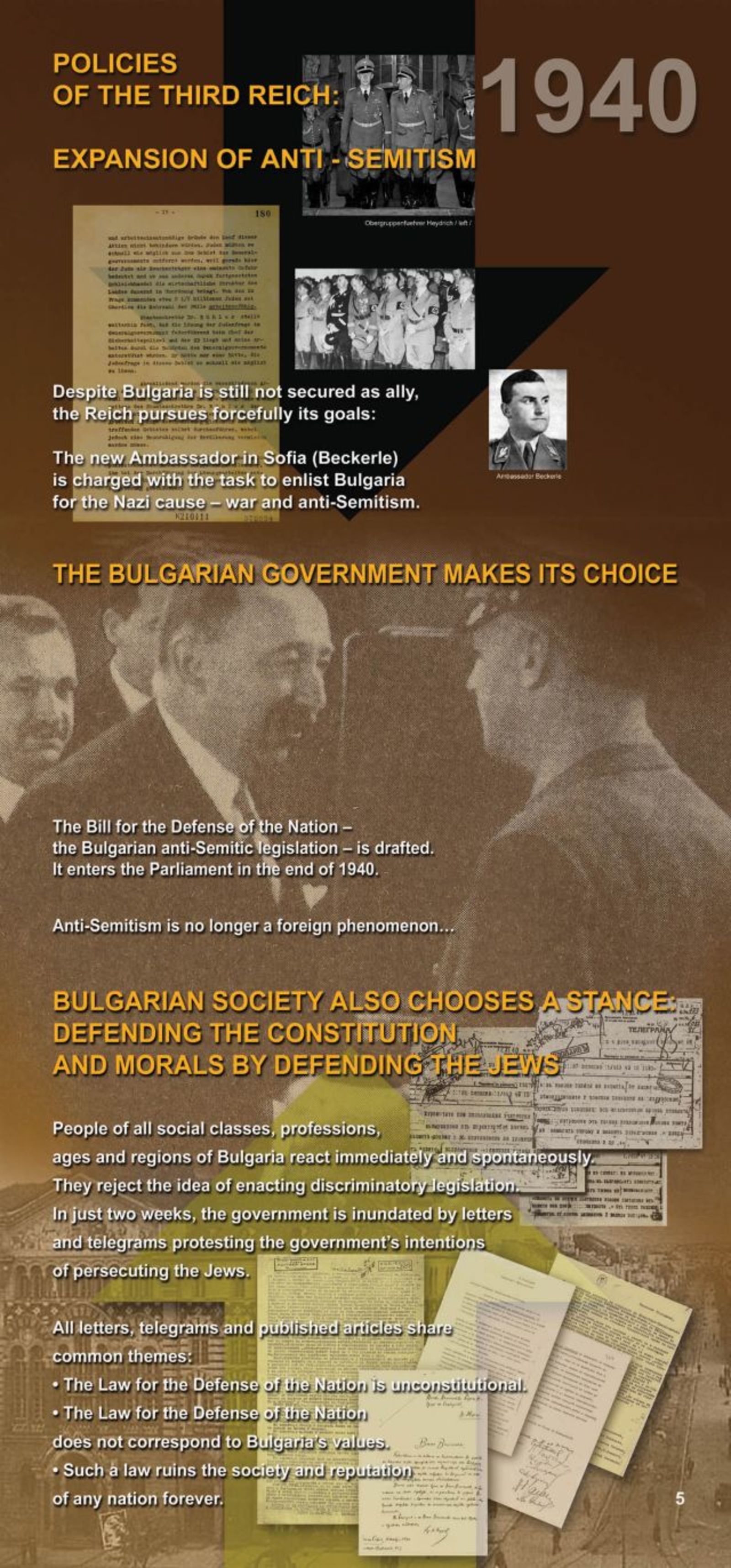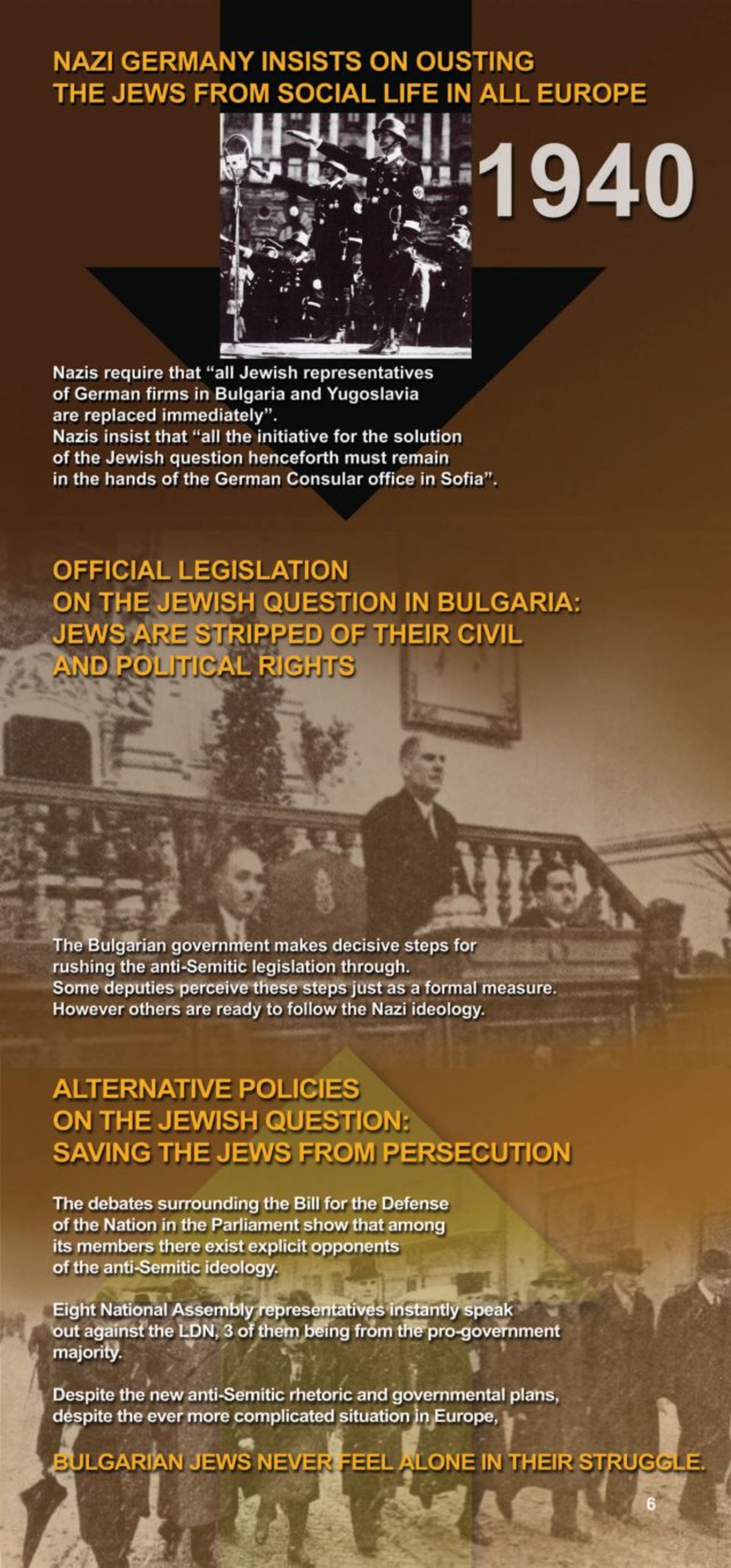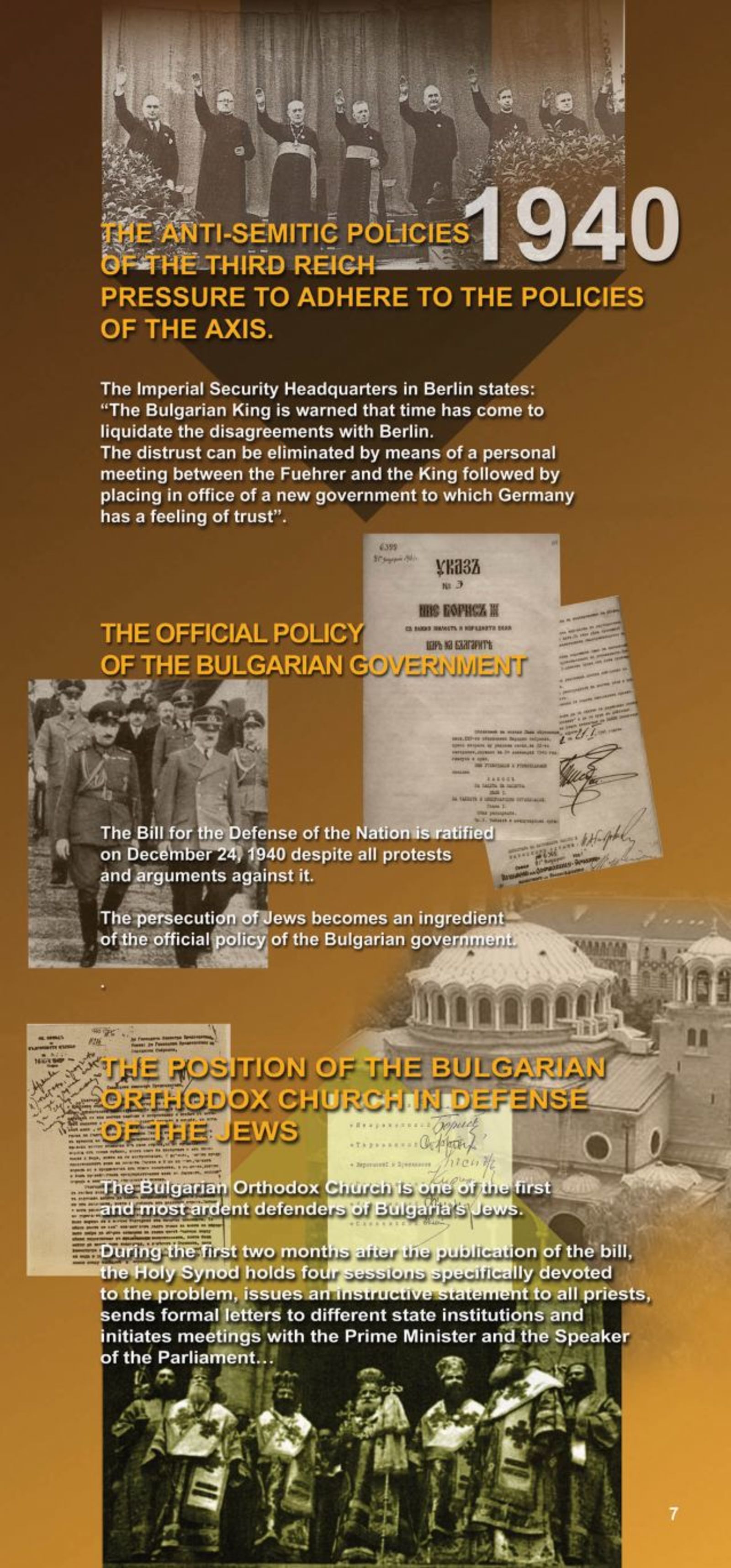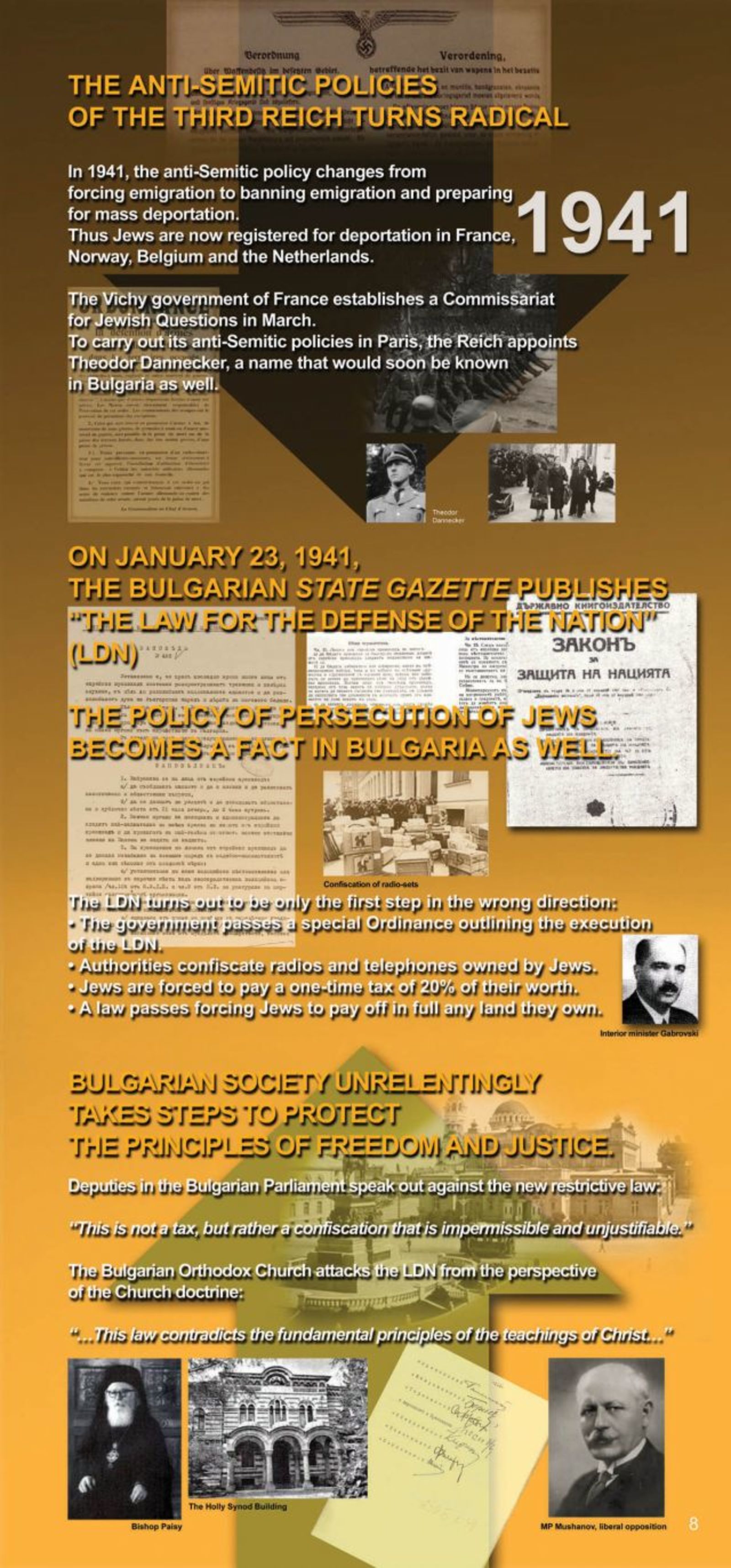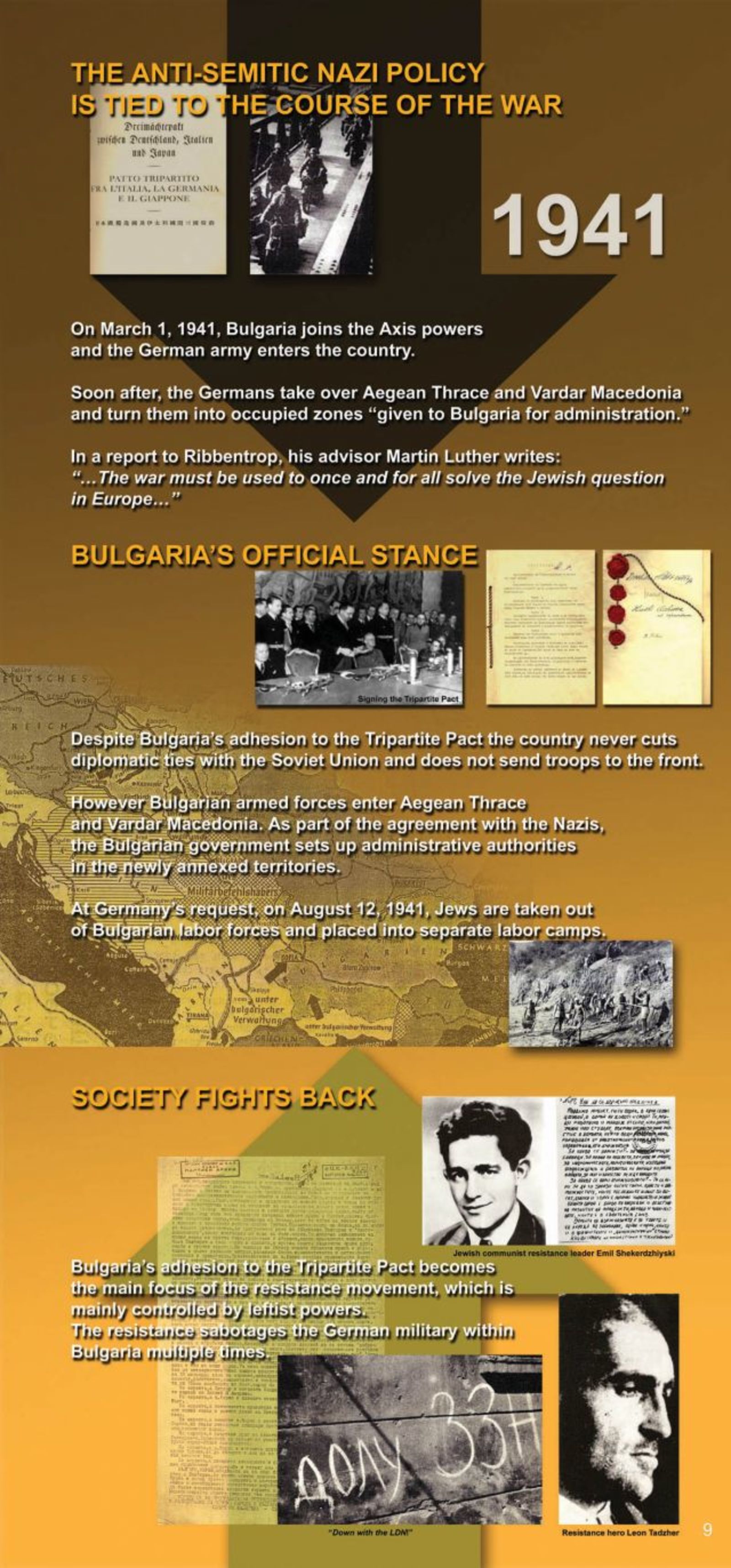THE POWER OF CIVIL SOCIETY: THE FATE OF THE JEWS IN BULGARIA
This exhibition chronicles the resistance by the citizens of Bulgaria, the brave refusal of society to obey the authorities' plans to send Bulgarian Jews to Nazi concentration camps. It is a message about the power of the free spirit. The exhibition traces the specifics of the Bulgarian case, the determination of Bulgarian civil society to stop a repressive policy.
“Depending on what part of the story is focused on, different labels are put on what happened. Our exhibition is called ‘The Power of Civil Society: the fate of the Jews in Bulgaria 1940 – 1944’ and tells the whole story - as it was,” Dr. Taneva said.
The rescue of the Bulgarian Jews was not a coincidence nor the result of a coincidence. It showed that it was possible to stop the Holocaust. Even when there was an alliance with Nazi Germany, in the presence of anti-Semitic legislation the Defence of the Nation Act, when there was a pro-Nazi government. This is a fact recognized by the German representatives in Bulgaria, in whose official documents it is pointed out that “the Bulgarians refused to surrender their Jews”.
The rescue of Bulgarian Jews is an outstanding historical example that shows that through personal and political courage, civic conscience and determination can counteract the most obscurantist policy. A readiness to help and pity are a powerful weapon in the hands of citizens. Human rights and the guaranteeing of human rights are indispensable for peace and progress and must not be compromised by any policy.
Celebrating the 70th anniversary of the rescue of Bulgarian Jews and paying tribute to the victims of the Holocaust, especially the Jews in territories occupied by Nazi troops in northern Greece and Yugoslavia, the Bulgarian public stands with the world in opposition to xenophobia, anti-Semitism, religious and ethnic prejudices.
The exhibition “The Power of Civil Society: The Fate of Jews in Bulgaria” premiered in November 2008 at the Foreign Ministry and by 2012 has been shown 30 times on three continents. In 2013 - when Bulgaria officially is marking the anniversary of these memorable events - this showing was a central event in the program of the Bulgarian missions abroad.
The exhibition was realized in collaboration with the Centre for Jewish Studies at Sofia University St. Kliment Ohridski.
The exhibition contains 21 panels with photographs, facsimiles and text that follows how events developed - on the international stage, the position of the authorities and the response of the Bulgarian public.
